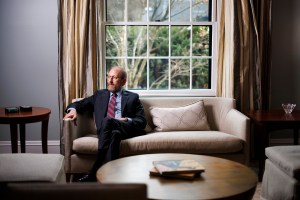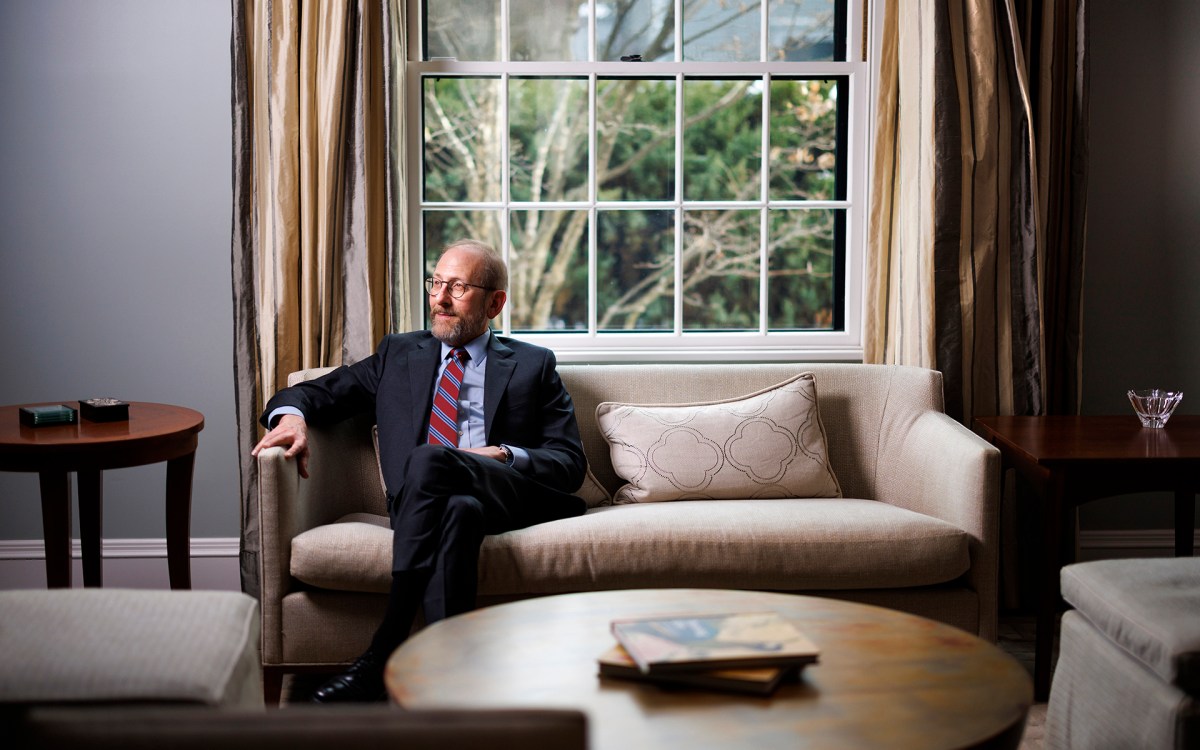Opening Days makes the most of it
Freshman orientation has fewer days but more activities to offer
The arrival of first-year students in Harvard Yard is always accompanied by the hustle and bustle of activities during freshman orientation — or Opening Days as it’s known at Harvard.
But the change to the University calendar, which affected many areas of campus life, particularly impacted new students acclimating to the Harvard community. In years past, Opening Days spanned nine days, but in 2009 it was compressed to six.
“The new calendar made it necessary to step back and consider all of our goals, and how we were going to achieve them in a six-day period instead of nine,” says Thomas A. Dingman, Harvard College’s dean of freshmen.
Although the highly successful addition of a freshman convocation the afternoon before classes began drew the most fanfare, Opening Days 2009 also featured several other additions to help students start the year on the right foot.
Three new academic fairs were offered, one for each of the academic divisions within the Faculty of Arts and Sciences (FAS): arts and humanities, social science, and science. The academic fairs were extremely well attended, says Dingman, allowing first-years to explore their academic options and ask questions of representatives from academic departments and research centers.
“The unparalleled richness of Harvard’s offerings can be daunting even to first-years who come from the country’s larger high schools,” says Richard Thomas, professor of Greek and Latin, Harvard College Professor, and director of undergraduate studies in the classics, who was present at the arts and humanities fair. “The divisional fairs should be a permanent institution. This was a terrific improvement over previous years’ fairs … an excellent development.”
Numerous panel discussions, coordinated by the Advising Programs Office, were also held with faculty, staff, and advisers to give first-year students the tools for academic success.
“We feel so grateful for all of the many ways that faculty stepped up in this new calendar to do advising, to share their intellectual interests, and to make more information available about what the humanities, sciences, and social sciences are,” says Dingman.
Opening Days is organized to help ease the transition to college life.
“In planning this year’s calendar of Opening Days, we made a special effort to organize each day so that the freshmen would meet and interact with the proctors, Peer Advising Fellows, advisers, deans, faculty, and administrators who will be here to support them throughout their first year,” says Katie Steele, director for freshman programming with the Freshman Dean’s Office.
Steele co-chaired the committee that designed Opening Days, along with Inge-Lise Ameer, assistant dean of Harvard College with the Advising Programs Office. The committee met throughout the previous academic year to map out the new orientation schedule and worked with the academic departments, as well as numerous College, FAS, and University offices, to plan this year’s events.
Another new program for first-year students was Get Involved Weekend, which brought together nearly 200 student organizations who held introductory meetings during the weekend of Sept. 4-7. Put together by the Office of Student Life, these meetings introduced students to Harvard’s abundant extracurricular activities.
To encourage students to venture out of their dorm rooms, Get Involved Weekend also featured late-night events, most starting at 9 p.m., which were organized by two or more student groups to have broad social appeal for first-year students. Late-night events included a “Climbing Bash” at the Lowell House climbing wall and “The Cambrian Explosion” at the Cambridge Queen’s Head pub, which brought together individuals from the sciences for food, music, and games.
“I hope that Opening Days sets students up for success by introducing them to the unparalleled educational and co-curricular opportunities that exist at Harvard,” says Steele. “And I hope that they’ve now had a chance to meet the many people who can help them to make the most of these opportunities during their first year and beyond.”




